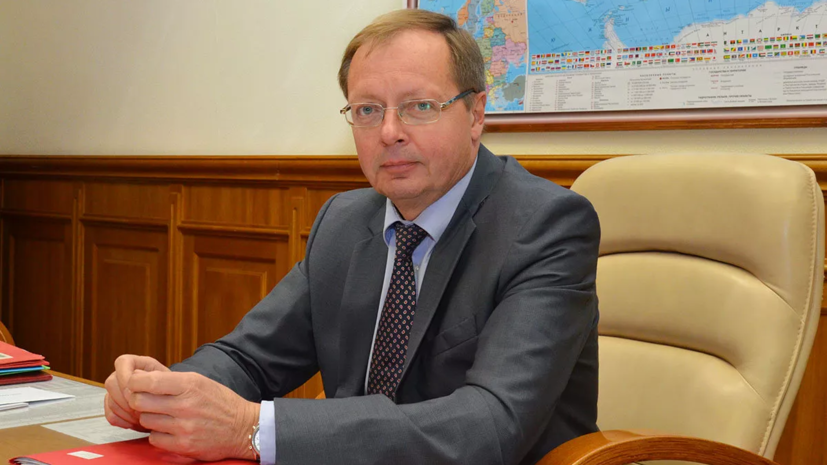This month marks nearly three decades since the USSR collapsed, but that is not stopping Moscow from looking for ways to improve its relationship with the west during a time when relations are some of the coldest they have been since December 1991.
In an interview with the United Kingdom’s Channel 4, Russia’s ambassador Andrei Kelin called on the North Atlantic Treaty Organization (NATO) to review its relationship with Russia, widely seen as the successor state to the Soviet Union.
“Our message [to NATO] is very simple,” RIA Novosti quoted Kelin as saying on Tuesday ahead of a NATO summit dedicated to the 70th anniversary of the military block. “Let’s review the existing situation since Russia does not threaten NATO.”
On Tuesday, top military officials and heads of state and government from NATO’s 29 member states gathered in London to discuss current and emerging security challenges, including what the bloc considers to be Russia’s destabilizing behavior in Eastern Europe.
Kelin emphasized that Moscow has no intention of threatening NATO, saying that any disagreements are politically motivated and represent a difference of viewpoint from London and Washington on issues of mutual concern.
“These political discrepancies have nothing to do with important military matters,” the ambassador stressed, denying that Russia is building up forces on its border with Western Europe, as some NATO members claim.
The summit, which opened on Tuesday and wrapped up yesterday, came in the midst of a poor relationship between the UK and Russia especially. The poisoning of a former Russian spy Sergei Skripal and his daughter in the UK in 2018 have all contributed to a relationship that spiraled down after what NATO claimed to be Russia’s military intervention and annexation of Crimea in Ukraine in 2014.
Speaking with journalists about the goals pursued by Russia in Syria, Kelin stressed that the main objective is to fight against terrorist groups that threaten to take hold of the entire region.
“And we dealt with it, we did it,” Kelin said, adding that there is still a lot to do to finalize the achieved results and “restore the country.”
Russia, along with Turkey and Iran, is considered guarantors of the Astana process, a diplomatic mechanism by which the three sides have tried to broker a ceasefire and political settlement of the Syria conflict by including representatives of all factions to the conflict, including Syrian rebels.
Both Moscow and Tehran have been helping the Syrian government led by Bashar Al-Assad in ongoing battles across the conflict-plagued country for the last eight years, while Turkey has instead backed the Syrian opposition.







 The Mine Action Agency of Azerbaijan (ANAMA) reported on Thursday the discovery of a significant amount of explosives in the Khojavand district of ...
The Mine Action Agency of Azerbaijan (ANAMA) reported on Thursday the discovery of a significant amount of explosives in the Khojavand district of ...
 Iran has refuted reports of alleged damage to Shimon Peres Negev Nuclear Research Centre located southeast of Dimona, Israel, during the recent air...
Iran has refuted reports of alleged damage to Shimon Peres Negev Nuclear Research Centre located southeast of Dimona, Israel, during the recent air...
 Iran’s Foreign Minister, Hossein Amir-Abdollahian, has labeled a foiled Israeli drone attack in certain parts of the country as a "failure" for Isr...
Iran’s Foreign Minister, Hossein Amir-Abdollahian, has labeled a foiled Israeli drone attack in certain parts of the country as a "failure" for Isr...



